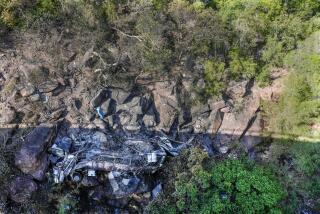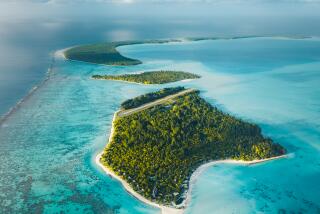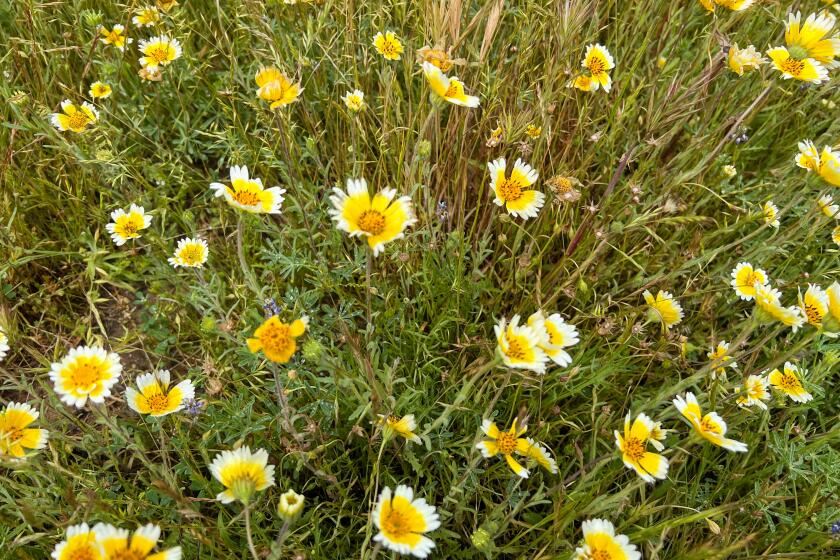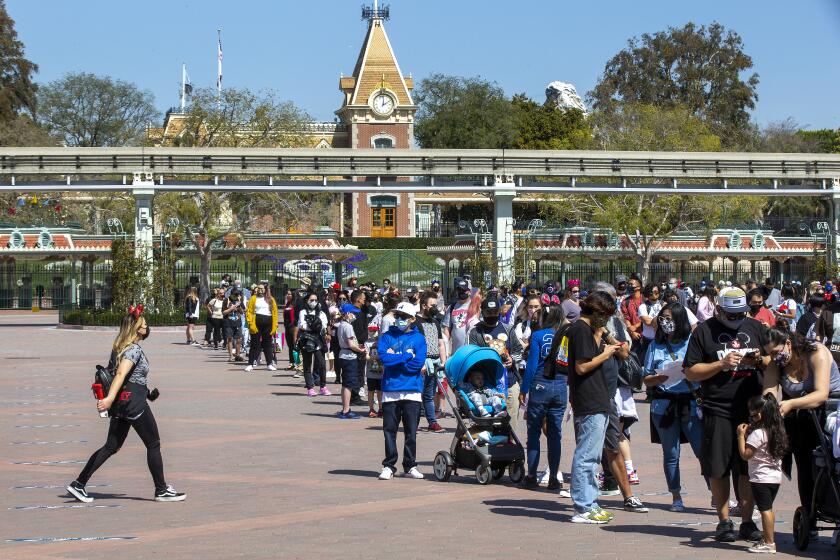A gentler time on the ‘Wild Coast’
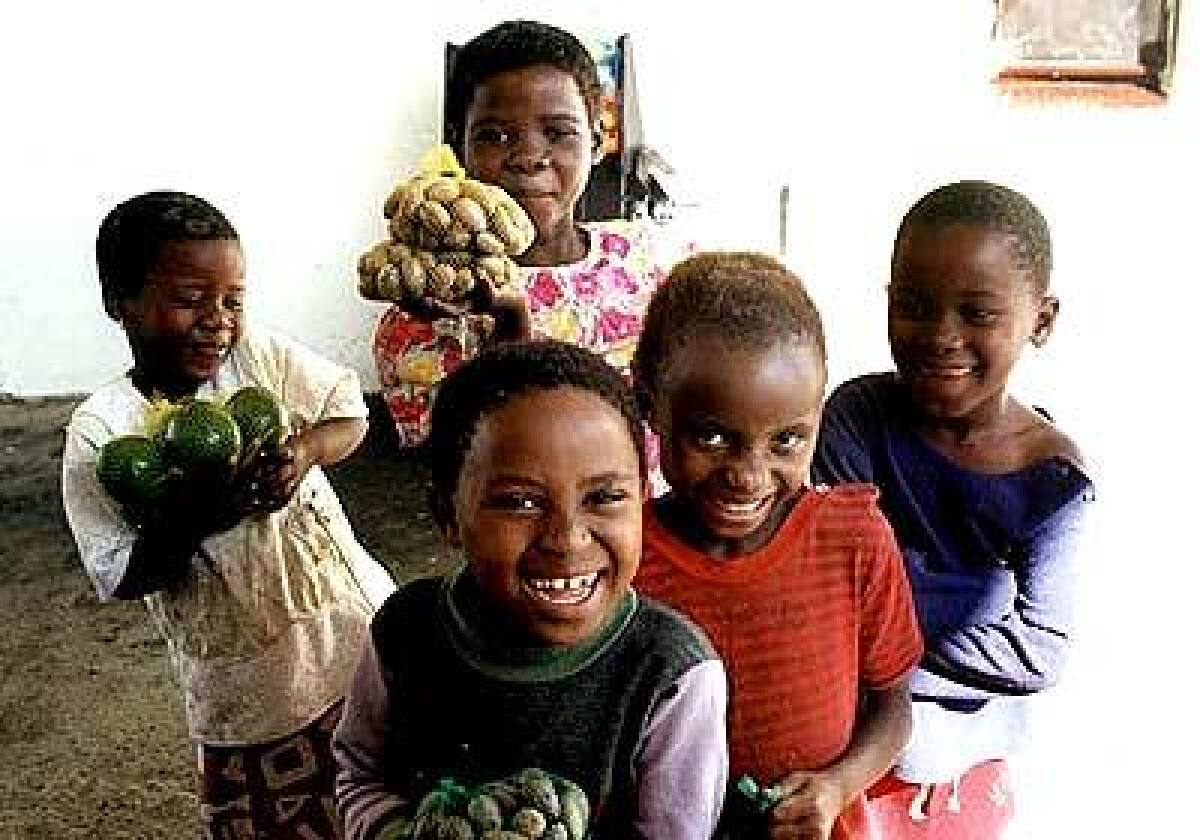
IT’S almost dawn. Here, where the Mbotyi River flows into the Indian Ocean, the lush vegetation is still damp from night mists. As the light ripens from purple to gold, I knock softly on the cabin doors of my fellow travelers. None of us wants to be late for our appointment with the sangoma, or medicine man.
We are on the “Wild Coast” of South Africa, so named because of its unforgiving shoreline and history of shipwrecks. The label fits in other respects too. The Eastern Cape province, including the former independent Transkei homeland, has known a wicked history of violence and political turmoil.
But we are game to explore this undervisited region for exactly that and more: its spectacular pristine coastline, the culture of the Xhosa people and a range of settlements from colonial to rough and tumble.
The other guests and I scramble to dress as the sun rises, piling packs into the van. Our host John muscles the vehicle over precipitous grassy trails as surf slams into rocks hundreds of feet below. We bounce and ricochet inside, ascending vertically through herds of grazing cattle, and drop down again to forge a small river.
Ahead, a circle of thatched huts bordered by twisted saplings comes into view, and we are greeted warmly.
Nondene Mkhanywa is used to visitors. We remove our shoes and enter his smoky hut, opaque with the haze of burning herbs. Grasping two horsehair staffs for support, he kneels and lights a white candle on the floor, amid a multicolored assemblage of jars, bottles, boxes, dried plants and seeds.
He asks where we’ve come from. Paris, Tokyo, New York are the answers. Then, standing under an imposing pair of bullhorns, he calls to the ancestors in an old form of Xhosa, translated by his son, Samwabile. His chants are raspy, his expression focused. Outside, the insistent bleating of a tethered lamb distracts from the pounding rhythm of distant surf.
Sangomas are diagnosticians, mediators, pharmacists and healers. In African society they interpret the cosmos and communicate with the spirit domain. Knowledge of the healing power of plants and herbs is passed from generation to generation, from sangoma to student. Nondene worked in the mines before answering the calling, which often begins with one’s own severe illness. Although he has seen and cured many maladies, he regards the scourge of AIDS as outside his domain.
After the incantation, his family joins him in a dance. With his daughter on the big drum, he gyrates and shimmies through exuberant rhythms; his ankles, strung with aluminum can tops, are percussion. We clap alongside his children and grandchildren and follow the family procession outside to the center of the village. His taut and sinewy frame belies his 60 years.
With the sun fully up, breakfast beckons, so after well wishes and photos we retrieve our shoes and return to Mbotyi River Lodge.
Land of conflict
The Mbotyi (meaning Place of Beans) River settlement began in 1922 as a remote trading station run by Scotsman Jack Barber, a rugged individualist who rented cabins to those intrepid enough to make it to the shoreline, hiking down through a forest of snakes and leopards. It survived a history of floods and fires, and in the 1980s, the land was sold to a doctor from nearby Lusikisiki. The bungalows were updated and the access road improved.In 1993, guests were evacuated when racial violence erupted in the Transkei. The lodge and grounds lay undisturbed until extricated from the overgrown grass eight years later, table settings intact.
I’m visiting with a group led by Nita Ross, an avid hiker who runs Wild Coast Reservations. She organizes visitor “meanders,” itineraries combining backpacking with camping, lodge stays and customized destinations. Beginning in Durban, we leave KwaZulu Natal province and head cross-country to the Eastern Cape, stopping to stretch our legs and buy fruit and nuts from local children. As we pass Xhosa villages, simple churches and sun-swept undulating hills, we are suddenly interrupted by a flat tire.
Two fellows walking the roadway come to our aid. One of our guides, Tuffy (“Xhosa is my first language”), asks for help, and the spare is unearthed, the vehicle elevated and the uninjured tire installed. Payment is in rand, profuse thank-yous and a lift to nearby Lusikisiki, where we find a tire repair shop amid a jumble of traffic, markets and storefront churches.
In the 18th century, the Xhosa, Brits and Boer settlers battled over land and grazing rights. This continued into the next century, when the Xhosa, beset with their treatment by the Europeans, heeded the misguided call of one of their own, an adolescent girl named Nongqawuse. She claimed to have a vision in which the tribe’s ancestors promised delivery from colonial tyranny if the Xhosa sacrificed their cattle and crops.
And so they did, instead producing starvation, population decimation and increased servitude to the British.
The Xhosa eventually recovered, resuming their agrarian life as cattle herds replenished. But rural conditions were increasingly insufficient for survival, and migration into cities became necessary for work. Land conflicts and ethnic tensions persisted.
With the enactment of apartheid laws in 1948, racial discrimination was institutionalized. In the self-governing Transkei, infrastructure and education fell behind much of the rest of South Africa.
Nelson Mandela grew up in the small Eastern Cape settlement of Qunu. His increasing activism, tremendous sacrifice and rise to international leadership are well documented.
The African National Congress also has its roots in the region. The organization, founded in 1912 as the South African Native National Congress, had the goal of maintaining voting rights in Cape Province. It was renamed the African National Congress in 1923 and banned from 1960 to 1990. In 1964, Mandela, its leader, was sentenced to life in prison. He was released in 1990; in 1994 he was elected president of South Africa.
Tourism has returned to South Africa. Cape Town, the Winelands and Garden Route, Kruger and other game parks still form the core of the tourist circuit. But the Eastern Cape’s mix of Mandela historical sites, malaria-free wildlife viewing and outdoor activities is attracting more attention.
Visitors who pass through Umtata can get a closer look at the region and its famous native son at the Mandela Museum, https://www.mandela-museum.org.za . Mandela, known by his Xhosa clan name Madiba, specified that the museum not be a tribute to him but a catalyst for the local community.
Call of the water
Tempted by the promise of a secret beach, I join two fellow lodgers for a short hike. We ascend a trail etched into the cliff. It is the width of a healthy cow. My flip-flops betray me in the loose soil, and I slow our pace.As we scramble higher, the vista grows ever grander, evoking Big Sur a world and a life away. The wind brushes patterns in the tall grass and agitates the wildflowers as waves assault the shore.
In season, migrating southern right whales and schools of dolphins are often visible, but today we see only local children gathering oysters in the tidal shoals. They bound up the hill and display their bounty cupped in frayed loose cloths.
“Why aren’t you in school?” Tuffy asks in Xhosa. The teacher is at college today, a little girl says.
In the early afternoon, we set off for Magwa Falls with sandwiches and drinks. Cattle hide amid the lush rows of tea plants, as if waiting in ambush. A vervet monkey scampers across our path, disappearing into the green felt of growth. We forge a shallow river alongside children who hopscotch easily across exposed rocks.
At the falls’ precarious edge, cascading water roars hundreds of feet down into a narrow gorge and rising vapors form miniature rainbows. It is said that at night an occasional unlucky cow makes a misstep and is lost over the cliff.
After sunset, we join hardy hikers for drinks and dinner at the lodge. The day’s bird sightings are tallied and compared: The trumpeter hornbill, scaly-throated honeyguide and emerald cuckoo are all local favorites. While the fire crackles and hisses, children play board games and clamber about. Although the wine is South African, the piped-in music, curiously, is not.
We have made our to-do list for a future visit: learn about tea harvesting at Magwa Plantation, poke around the estuaries and lagoon in a boat, try horseback riding in the hushed tranquillity of thick coastal forests, perhaps search for the endangered Cape parrot. Nearby nature reserves such as Hluleka and Mkambathi also await the next visit.
On my last day at Mbotyi, after a fortifying breakfast of strong local tea, fresh fruit and porridge, I am compelled to test the surf. Heading down from the lodge toward the beach in the bright morning sun, I pass a stand of glistening yellow kayaks ready for action, traverse pristine dunes and wade swirling eddies, holding my camera above my head.
The waves are clear and kind, and in less than a minute, the ocean feels comfortable.
Soon I have company — cattle from the local village. I circle them in the surf with my camera. They seem to enjoy the sea breeze, being safe for now from the ticks and biting flies found farther inland. We dally in the shallows, then the carbonated sea erases their hoof prints in the wet sand as they traipse past me, in silent unison, to some secret appointment.
*
(BEGIN TEXT OF INFOBOX)
Exploring the Cape
GETTING THERE:
From LAX to Cape Town, South Africa, connecting service (change of plane) is available on Lufthansa, Delta and American. Restricted fares begin at $1,888.
Connect to Durban or Cape Town on South African Airways or Nationwide Airlines, which provide regional transport.
Bus and jitney services are reliable and available throughout the Eastern Cape. Car rental is available. Night driving is not recommended because of cattle on roads.
TELEPHONES:
To call South Africa from the U.S., dial 011 (the international dialing code) and 27 (the country code for South Africa) followed by the number.
WHERE TO STAY:
Ocean View Hotel, Coffee Bay, P.O. Box 566, Umtata 5100; 47-575-2005, https://www.oceanview.co.za . This family-run property has good home cooking and is between towering cliffs and the Indian Ocean. The 30 rooms offer unobstructed views of the beach. Doubles $79 to $140, including breakfast and dinner.
Kwa Tshezi Lodge, Coffee Bay, P.O. Box 13700, East London 5200; 47-575-2051, https://www.tshezilodge.co.za . This new, spacious inn is close to the main beach; rooms have access to decks and patios. Traditional Cordon Bleu kitchen. Doubles $54 to $60, including breakfast.
Mbotyi River Lodge, P.O. Box 645, Lusikisiki 4820; 39-253-8822, https://www.mbotyi.co.za (about a three-hour drive from Umtata). Activities abound at this lodge on the mouth of the Mbotyi River. There are coastal and mountain trails as well as horseback riding, canoeing, visiting local Xhosa villages, fishing, and sunbathing by the pool or on the beach. Seaside log cabins or small huts available. Doubles from $103.
WHERE TO EAT:
Emzini’s, Hemingway’s Casino, East London 5201; 43-726-9169. Traditional Xhosa/African cuisine. Live jazz band nightly. Among the favorites: corn bread, fresh ginger beer, meat stews, sweet potatoes and salads. Entrees from $3.
Jonopo Cultural Village, Qunu, Eastern Cape; 47-531-5290, https://www.mandela-museum.org.za . Learn about the Xhosa culture here and have lunch too. The village is part of the Nelson Mandela Museum, which has headquarters in Umtata. Tours available.
TOURING:
Wild Coast Holiday Reservations, P.O. Box 8017, Nahoon, East London 5210; 43-743-6181, https://www.wildcoastholidays.co.za . This tour company has package itineraries from three to six days, featuring hiking, bird-watching, horseback riding, boat rides, game viewing or golf. Prices vary.
TO LEARN MORE:
Eastern Cape tourism information, https://www.ectourism.co.za or https://www.wildcoast.org.za .
South African Tourism, (800) 822-5368 or (212) 730-2929, https://www.southafrica.net .
— Ericka Hamburg
More to Read
Sign up for The Wild
We’ll help you find the best places to hike, bike and run, as well as the perfect silent spots for meditation and yoga.
You may occasionally receive promotional content from the Los Angeles Times.
